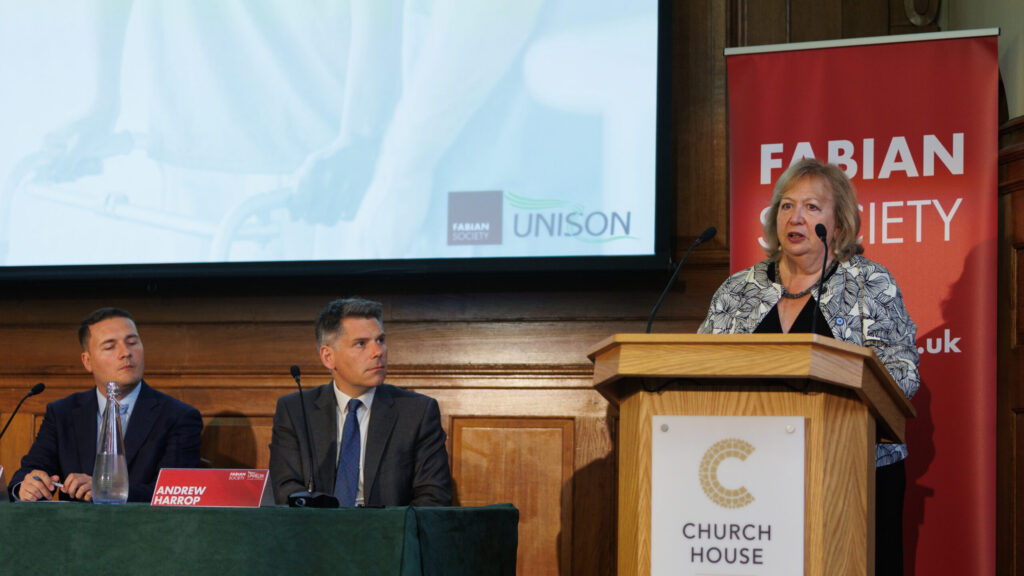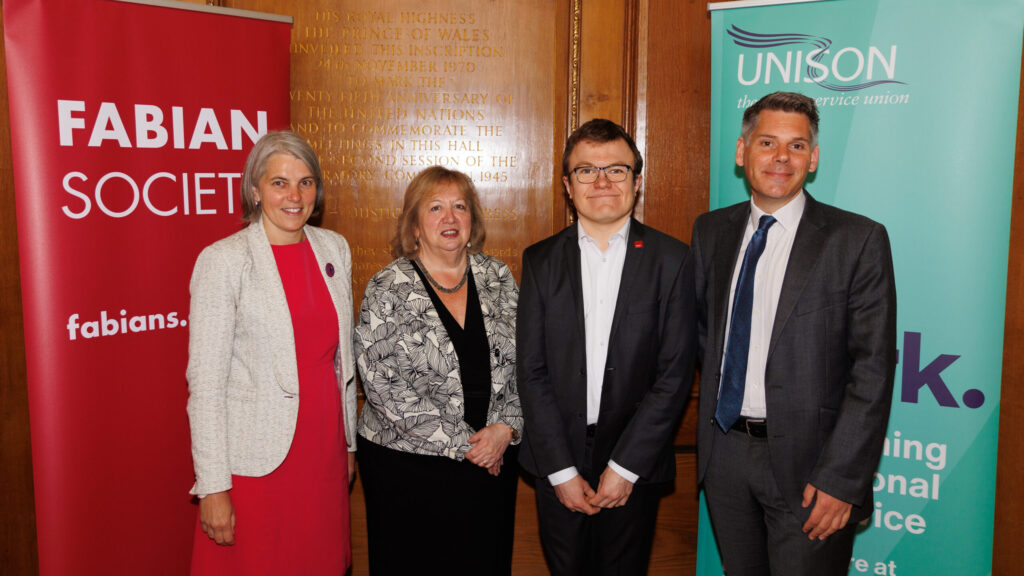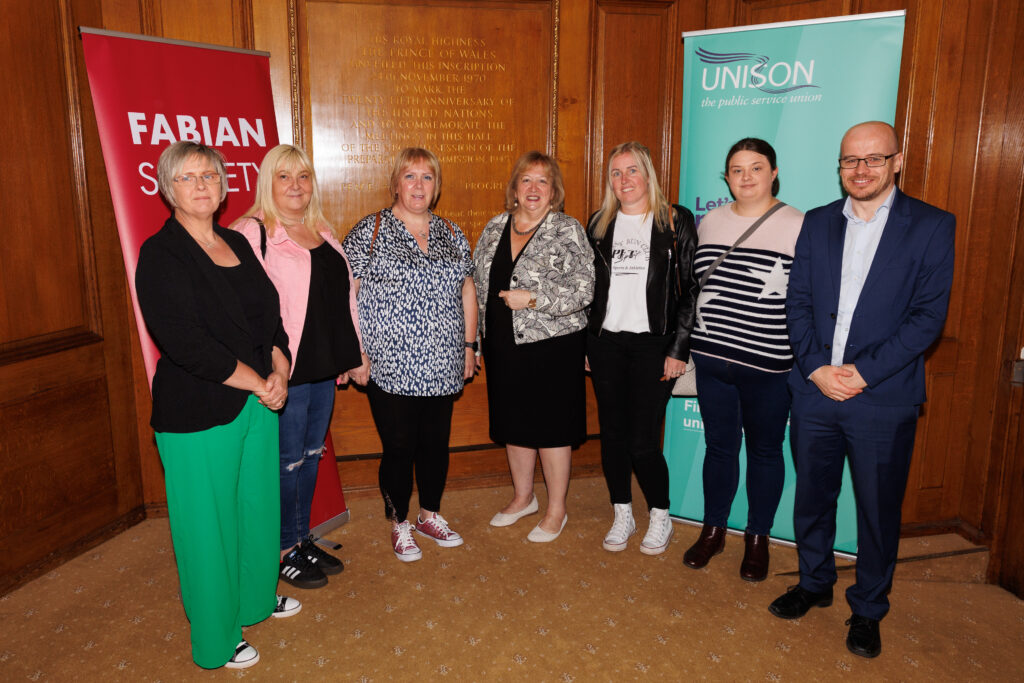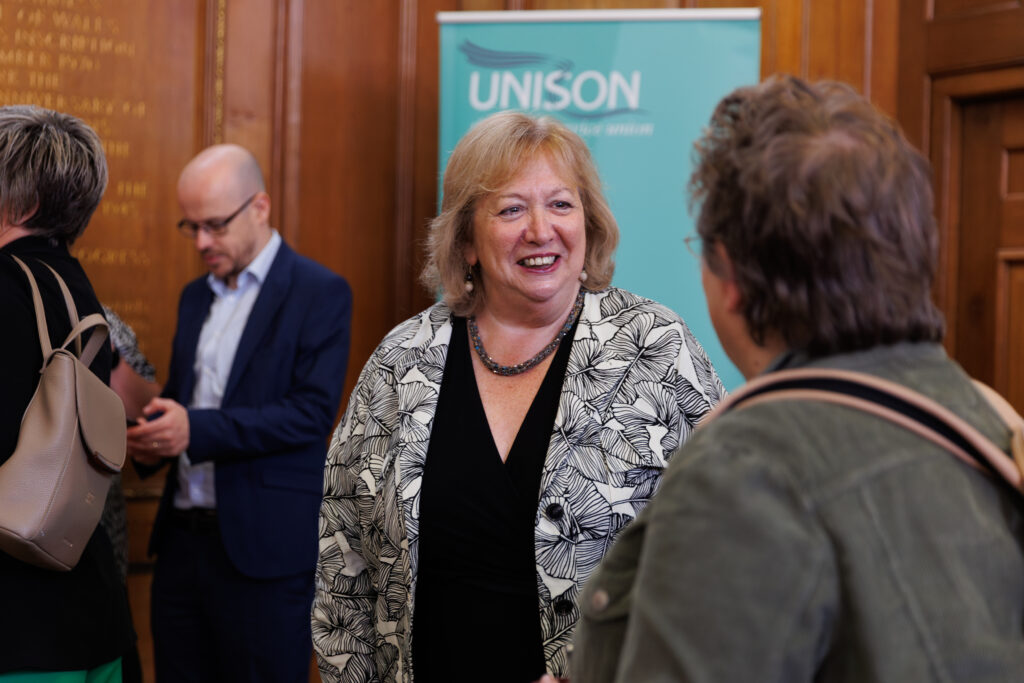UNISON joined the Fabian Society to launch the first ever roadmap to a national care service at an event in Westminster late last week.
The event marked the launch of Support Guaranteed, a report commissioned by UNISON but produced independently by the society.
Introducing the report, co-author and general secretary of the Fabian Society Andrew Harrop said: “The backdrop of the project is an adult social care system on its knees. Since 2010, spending on adult care has fallen hugely, relative to levels of need, and poor pay and conditions have helped trigger a staffing crisis in the sector with 165,000 vacancies.
“But extra spending will not be enough to address these problems on its own. Money must come with reform.”
He moved on to summarise the five key themes of the report with his co-author, Ben Cooper:
- a fair workforce settlement – the most pressing of the issues as, without a new deal for care workers, the system will not be able to recruit and retain the people required;
- building a service for everyone – support would be available to anyone needing help, regardless of means;
- a system with stronger rights and entitlements – people will have control and choice over the support they get;
- making adult social care a comprehensive service – end the postcode lottery in support and provision and create a care service with government, councils and licensed care providers united in a shared purpose; and
- see it become more affordable over time – at a time when public finances are tight, it is crucial to help those who are missing out on support to access what they need, as well as making it more affordable.
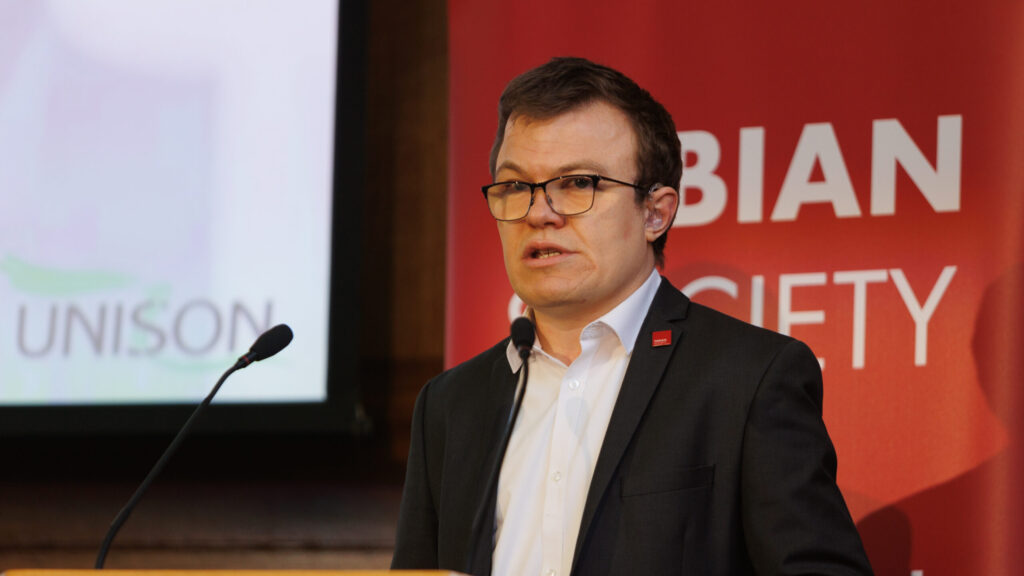
Ben Cooper outlining the themes of the report
Mr Cooper continued: “What Andy and I have outlined today is a substantial package of reform that would take at least 10 years to realise.
“The national care service is a shared national endeavour to give every individual the right support in the right way at the right time to live well and independently. It would be transformative to the lives of hundreds of thousands of disabled people, older people and carers.
“I know this because – as someone who will draw on social care in the future, either in the next few years or the next few decades – the idea of a national care service gives me confidence and security. Confidence that whenever that day comes, it will not be a moment of fear.
“Just as the past generation built the NHS for the 20th century, we can build an NCS for the 21st.”
Mr Cooper and Mr Harrop were joined by UNISON general secretary Christina McAnea and shadow health and social care minister Wes Streeting MP in a panel moderated by Dr Anna Dixon.
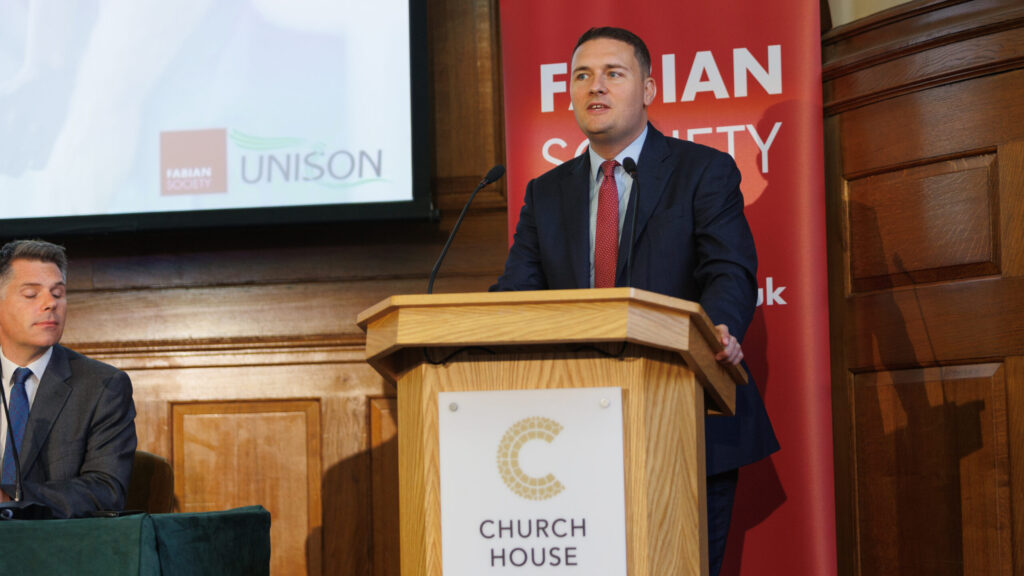
Wes Streeting outlining Labour’s policy around adult social care
Mr Streeting spoke about Labour’s commitment to reform in the care sector. He started by telling the audience: “I’ve reached the stage of life where social care has become personal rather than just political.
“But as soon as any of us have to rely on the social care system, it becomes clear it’s not an adequate safety net. ‘Cradle to grave’ increasingly feels like a dream that has not been achieved.
“And if there was one moment that put to bed, forever, the Conservative’s claim to be the party on the side of working people, it’s surely this: carers told to isolate without sick pay in the middle of a global pandemic. No one should be forced to choose between going to work to feed your family, or isolating at home to protect public health.
“People who receive and deliver care have been let down time and again by broken Tory promises. I’m not going to repeat their mistakes. There will be no well-meaning, wishful thinking before an election, only to see promises broken by contact with the hard realities of government.
“Instead, we’ll be honest with ourselves, with you and with the country about what we can actually deliver in the first term of a Labour government. And that’s why this report is so important, it gives us a lot to think about and reflect on as we think about Labour’s next manifesto and our longer-term ambitions.”
Christina McAnea addresses UNISON’s priorities in adult social care
After the shadow minister spoke, Christina McAnea also gave her thoughts on the report: “This report is extremely comprehensive and I believe it strikes just the right balance of being sufficiently ambitious, given the state of the care sector at the moment, but also providing a practical, realistic roadmap for overhaul and renewal.
“It is the first time we’ve had a detailed plan about how a government could go about achieving this. And the hope is that it will provide a really important contribution to the wider social care debate and specifically to the development of a national care service.
“Change is required more desperately than ever. But it must be the right change, because it’s too important to get wrong. You can’t just continue to throw money at an unreformed system because too much of it fails to reach the services and the people who need it.
“We also need to change the narrative around social care, it is not a drain on our economy, it is a driver of our economy. It is an essential part of the infrastructure that keeps the economy ticking, just as people need trains to run and roads to drive on. We need a care service.
“It does genuinely feel to me, and I hope to you all too, that this generation of politicians and policy makers have an opportunity to make that once in a lifetime shift. To make history when it comes to a national care service.
“We should be bold, we should be ambitious and we should end that sticking plaster approach to social care and actually go for some radical surgery.”
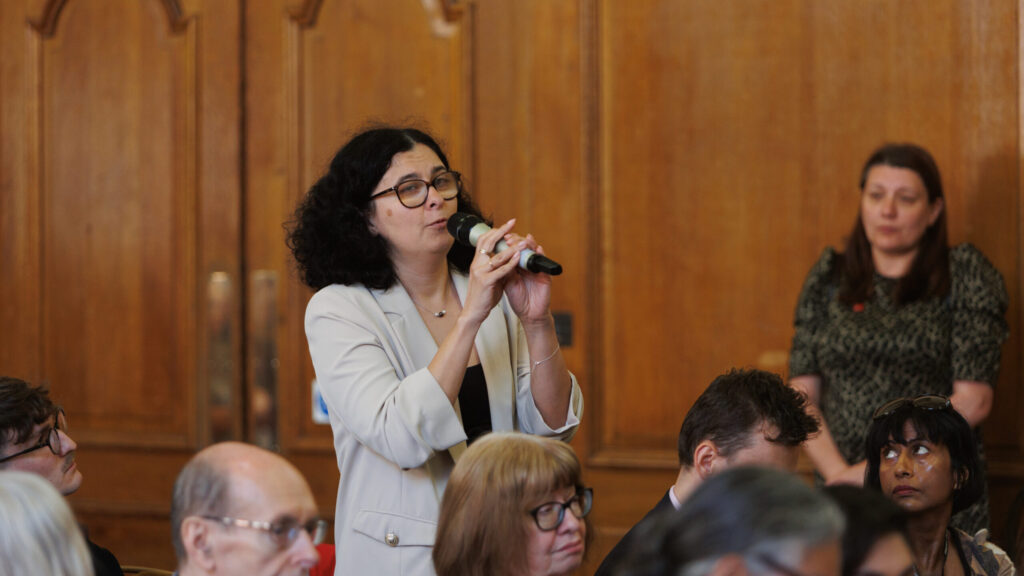
After the speeches, the panel fielded questions from attendees, including care workers, key industry stakeholders and journalists, on a range of topics including:
- professionalisation of care work;
- gender equality in the workforce;
- the proposed role of local authorities in a national care service; and
- how the NHS and a national care service would work in tandem.
One UNISON care worker who attended the event said: “Hopefully, going forward, things are going to change and improve for everyone in the care sector – today has been a really positive event. It’s going to take a while, and maybe in my life I might not see every change I’d like to see, but you’ve got to start somewhere.”
L-R Dr Anna Dixon, Christina McAnea, Ben Cooper and Andrew Harrop
Christina McAnea (centre) with five UNISON care workers from the North West and UNISON national officer Gavin Edwards (right)
The article Support Guaranteed: The roadmap to a national care service first appeared on the UNISON National site.


